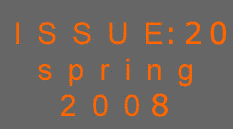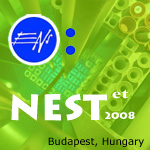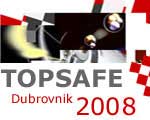
Word from the President

Anniversaries are a time for celebrating, remembering
past achievements and for reflecting on the present and the future.
Well, I was delighted to have been invited to take part in celebrations
to mark the recent 50th anniversary of a stalwart member of ENS – SGK,
the Swiss Nuclear Society. To have represented the Swiss nuclear
science community with distinction for half a century is a considerable
achievement in itself. Since Switzerland has always played a
lead role in the development of nuclear energy in Europe, and
SGK has been at the forefront of the nuclear science movement
in Switzerland since the early pioneering days, it is true to
say that the Swiss Nuclear Society has been an indelible part
of that history. It has witnessed the good days and the bad days.
SGK’s fiftieth birthday got me thinking about the unique
place that Switzerland has occupied in the history of nuclear
development in Europe and of the Society’s place in that
history. There are interesting parallels that can be drawn between
what Switzerland and the UK have experienced and between their
respective positions today. Allow me to share a few memories
and observations with you.
I was especially delighted to be part of the
celebrations because throughout my career I have had the pleasure
of working with the Swiss nuclear community at various levels
and have experienced first hand their dedication and technical
expertise. During my time at BNFL I have been privileged to work
with NOK, Switzerland’s N° 1 producer of nuclear-generated
electricity. At that time I was also Chairman of NIREX in the
UK and this gave me the opportunity to work alongside colleagues
at NAGRA, the Swiss National Co-operative for the Disposal of
Radioactive Waste. This has enabled me to get a first-hand personal
insight into the Swiss approach to nuclear power and I have never
failed to be impressed.
As we reflect upon 50 years of Swiss nuclear
history, it strikes me as particularly appropriate that these
anniversary celebrations should take place at the Paul Scherrer
Institute. In the 1950s, Paul Scherrer and his associate Walter
Boveri led the nuclear movement in Switzerland. Walter Boveri,
together with Charles Brown, later founded the Brown Boveri Corporation
(ABB), which played a key role in the early development of nuclear
power in Europe and became an international force in reactor
design and the building of nuclear power plants. I remember well
when, under BNFL’s ownership, Westinghouse acquired the
nuclear interests of ABB.
In 1955, Switzerland hosted the World Conference
on the Peaceful Uses of Atomic Energy, and Switzerland has been
promoting this aim ever since.
In common with virtually all nations, Switzerland
has had its difficulties. For 20 years the “Kaiseraugst” controversy
became a cause célèbre for anti-nuclear protestors.
And, of course, radioactive waste management has been problematic
at times. However, I am sure that every nuclear nation would
concede that handling radioactive waste can be a problem. NAGRA
has accumulated a great deal of technical experience and expertise
over the years and has come up with a range of effective technical
solutions to the question of handling nuclear waste. The secret
is getting increased public acceptance for these solutions translating
this into political acceptance of and support for them.
This underlines the importance of effective
communications. It’s all about getting the message across.
Some countries have learnt the importance of good public communications
the hard way, for others it is built into the fabric of the political
landscape – which helps. Over the years, the Swiss system
of open democratic decision-making has proved to be a strength
when overcoming these communications problems. The Swiss Nuclear
Society has played a key role in making sure that the right messages
reach the right audiences. Although decision can be a long process
in the Swiss system, once reached decisions are invariably accepted
and implemented. Consequently, the Swiss industry has always
been well placed to produce long-term, outstanding results….and
it has! Throughout the past 20 years the Swiss fleet of power
reactors has run with a load factor of 80% and around 90% over
the past 10 years. This is an outstanding achievement by any
standards and worthy of our congratulations.
For many years Switzerland has reprocessed its fuel and for 30
years you have been burning MOX fuel in Swiss reactors. The
fact that Switzerland was one of the first nations to close
the thermal cycle is another example of responsible and thoughtful
leadership by the Swiss nuclear industry.
So, after 50 years of successful nuclear power generation and
50 years of SGK representing unstintingly the Swiss nuclear science
community, it is time to look to the future – a future
that I’m sure SGK will be an active part of. Switzerland
and the UK have both recently changed their nuclear policy and
embarked upon a programme of nuclear new build. Both countries
are seeking to replace and increase existing capacity.
The peaceful use of nuclear energy has a long and distinguished
history in Switzerland. There is much to look back on with pride.
And strong foundations have been laid for the next phase to be
built upon. The future looks bright.
It has been a pleasure for ENS to count SGK among its members
and long may the fruitful cooperation between the two continue.
Congratulations to the Swiss Nuclear Society for the past 50
years…and here’s to the next 50!
David Bonser
President of ENS
|





